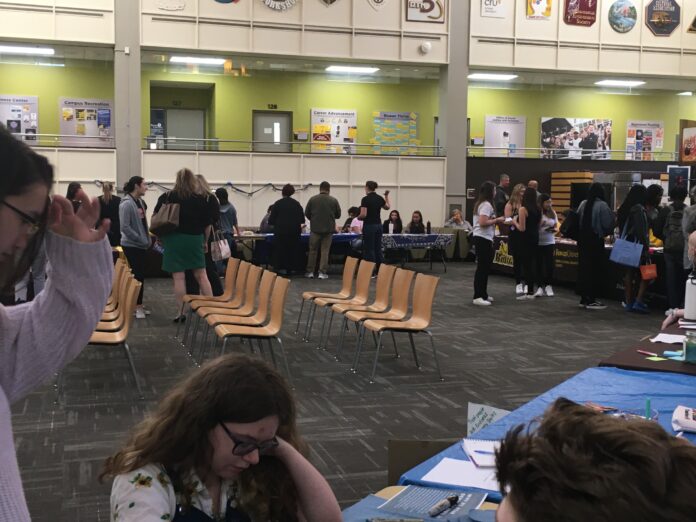
April is Sexual Assault Awareness Month, a time to recognize and raise awareness about the impacts of sexual abuse on victims and survivors, aid in prevention and support those who have experienced these things.
From my own experiences, I know that the effects of abuse are not just one thing. Like most kinds of trauma, the effects are physical, mental, emotional, psychological and physiological. They are not always obvious or immediate, some impacts being so deeply seeded that they may not be felt or understood for years after acts of abuse or assault.
Because of this, Sexual Assault Awareness Month is incredibly important for any community, but especially in a university setting with the prevalence of assault on and around college campuses.
So, could Rowan be doing more to raise awareness about and address its own issues with consent, assault and drink spiking to honor the month?
That’s not to say that Rowan is doing nothing. The Wellness Center and Healthy Campus Initiatives have made efforts to honor the month through events like Take Back the Night and the Denim Day banner they plan to hang in the office. Events like these are important and can be helpful to show solidarity to those who feel alone in their experiences.
However, as stated on Rowan’s website page about the event, “Green Dot and other campus resources are available to educate students about avoiding situations where they or their friends could be at risk.” While empowering those most at risk to avoid danger can be helpful, I feel the university focuses too heavily on training those at risk to not have abuse happen to them. The responsibility should not be placed mostly on them, but more heavily on those most likely to perpetrate such an act.
The Office of Student Equity and Compliance hosts consent workshops several times a semester — including last month in March with one for students — particularly for those in Greek life and sports. There is also another workshop specifically about Title IX for faculty and staff. This is probably one of the most beneficial and effective steps the university takes, though having more workshops or making them mandatory to more students could be a more effective step and aggressive preventative measure.
Bystander training, like the Green Dot training Healthy Campus Initiatives holds, has also been shown to be effective in the prevention of violence and abuse, and I think that it should be more widely publicized and available at the university.
In last week’s letter to the editor in The Whit, the writer also pointed out the difficulties in reporting, the implicit and at times explicit shaming that takes place by those in charge, and the ineffectiveness of the systems in place to hold perpetrators accountable for their actions. The university could and should be doing more to make sure the language they use does not make those already in a vulnerable position feel blamed, shamed or more powerless than they already do.
The same writer also pointed out the university does not have a support group specifically for survivors of assault and abuse. This should be changed. The Wellness Center offers support groups or group therapy for stress, anxiety, grief and loss, and several other difficulties common among college students, so this same resource should be available to those who have experienced this form of violence.
While sexual assault and abuse will never be able to be fully prevented, there are definite ways to reduce the prevalence of it, especially in more insular communities like campuses. Rowan specifically could be doing more to protect and empower student victims and survivors.
For comments/questions about this story, email the.whit.rowan@gmail.com or tweet @TheWhitOnline





